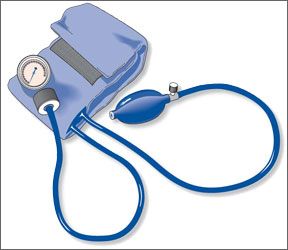According to the American Heart Association (AHA), the term "low blood pressure" or "hypotension" is relative; a pressure reading of less than 120/80 mmHg is considered dangerous when it is accompanied by symptoms such as dizziness or fainting (syncope). Severely low blood pressure can indicate serious heart, endocrine or neurological disorders and can deprive the brain and other vital organs of oxygen and nutrients, leading to shock, which can be a life-threatening condition. "It is difficult to define hypotension based on a particular blood pressure cutoff level," says Mohammed Rafey, MD, an associate staff member in the Department of Nephrology and Hypertension at the Glickman Urological & Kidney Institute at Cleveland Clinic. "This is especially important as we enter an era in which evidence from clinical trials is redefining the level of optimal blood pressure."
To continue reading this article or issue you must be a paid subscriber.
Sign in






